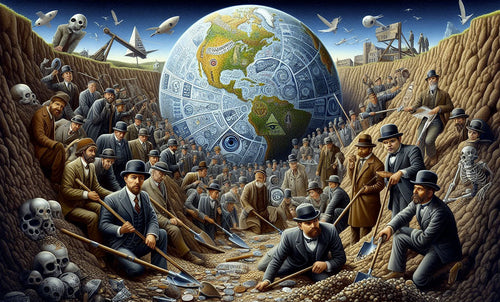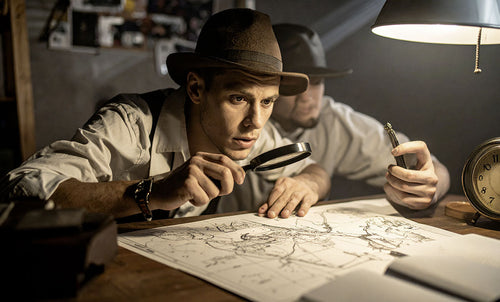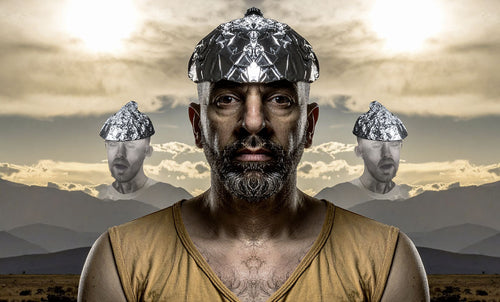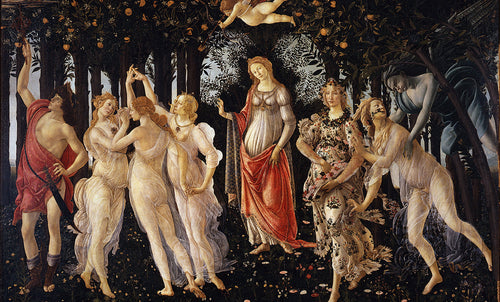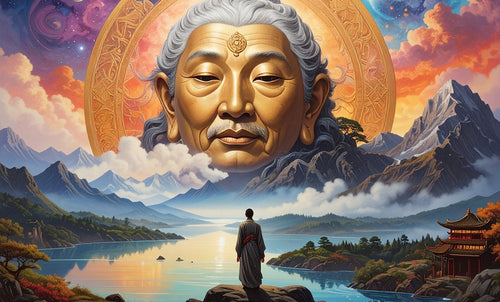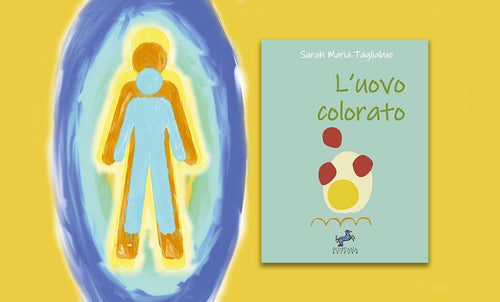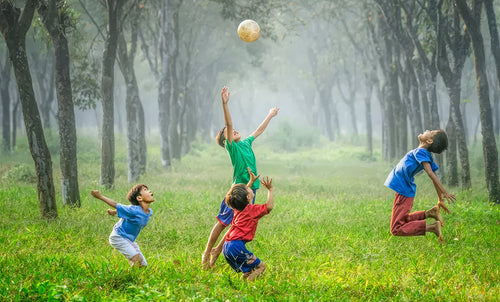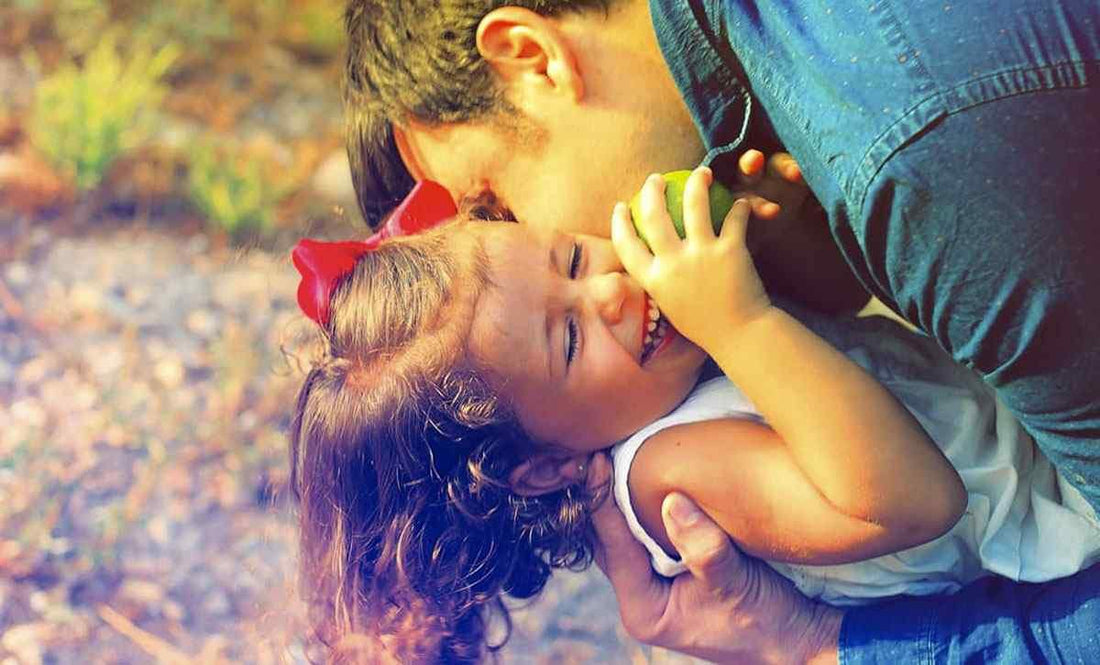
Parenting is an art!
Nicoletta GeniolaBeing a parent is an art! “Art does not reproduce what is visible, but makes visible what is not always visible.” Parenthood represents one of the most evolutionary and mature experiences of an individual's emotional dynamics , a long and continuous “apprenticeship” to learn the art of being authentic, autonomous and complete both from a spiritual point of view (emotions, feelings, behaviors) and a personal one.
Taking care of children means first of all working on yourself. Taking away, sculpting and refining to bring out the truest and most beautiful part of us, our soul.
Human growth is made up of phases that repeat themselves throughout life, but I like to add that even what repeats itself is never the same, everything is in continuous evolution and transformation, even when we don't realize it. Whether you like it or not, adhering to a new consciousness is a necessary and conscious step to serenely face every "difficulty" of life, transforming it into a true teaching, through which to learn to observe and improve ourselves. Spirituality is culture, and culture is having a clear knowledge of oneself. This aspect is important because the evolutionary stages of children awaken the needs and fears of parents.
According to Erikson: “The strength acquired at each stage is revealed in the need to transcend it and to risk in the next what in the previous one constituted the most vulnerable and precious elements”.
Becoming a parent is not a point of arrival, but a point of departure. Repeating internalized educational models, whether positive or negative, of one's parental figures is not educational. It is essential to gain the ability to give our children what we truly are and not what others wanted us to be.
Many parents need to put their internalized parental models into action, so that they can contact them, most of the time by entering into the pain and then being able to separate from it, reworking their own models. The parent must first develop humility towards themselves, must forgive their "limits" and their "defects" if they want to transform them into spiritual qualities useful for the growth of their child and the whole family. Another fundamental aspect that the parent must develop is authenticity, that is, the inner honesty that allows them to discern the truth from the false judgment towards their beliefs and towards their child. Only through inner honesty can we open ourselves to change, because if we do not recognize our truth, we cannot recognize it in our child either. The truth is that we are also divine beings, but we have forgotten it.
Sometimes we pretend to be perfect parents and by believing so we end up becoming imperfect, since this expectation of perfection only generates further disappointment and frustration.
What is important is to reveal ourselves to ourselves and our children for who we are. Realizing our limits is part of the evolutionary work of the human being, because it is only by being aware of our limits that we can bring out our strengths. We all "make mistakes", but the real mistake lies in the inability to admit and recognize it and even more in the inability to know how to apologize. When we make mistakes towards our children, instead of remaining anchored to our idea, it would be appropriate to apologize. This happens with a small effort which is that of learning to be indulgent towards ourselves and towards others, a fundamental attitude that has not been passed down to us, but which is nevertheless present in the memory of our cells! Let's not forget that we are like the drop that contains the ocean; this awareness of being a microcosm in the cosmos leads us to detach ourselves from feelings of guilt because we understand that that drop is perfect as it is, even if smaller and different from the ocean in its size and shape, it is not for the essence it contains. The most important help to free ourselves from guilt comes from our children. They love us as we are, without expectations, without judgment. If they do it, it is because in some way you have done it with them. If we do not listen to them, if we do not seriously prepare ourselves to welcome them, if we do not learn to perceive reality from their point of view, it will be much more difficult to manage them and help them grow healthy and happy. And what parent would not want to see their child free, happy and fully fulfilled? After all, isn't a child perhaps the extension of your own conscience?
Rules and discipline dispensed in a conscious and authoritative manner and above all through good example, are essential guides for a child because there is no freedom without a balanced discipline, without responsibility, that is, without the capacity for permanent integrated and conscious self-observation. Obviously, a child when he is small is not able to self-observe, but he can do it through the example of his parents, mirroring himself in them. Having stable and coherent points of reference, we could say adults, develops in the child a better perception of himself, of his own identity and a better ability to choose, learning to deal with others and to grow together in a constructive and positive way. All this predisposes to the possibility of an integrated and harmonious enrichment of the "personality". To learn to choose, one must therefore be "disciplined", because it is easy to transform the choice into an adaptation to the "fashions" of the moment, definitively losing the perception of oneself and of one's own truth. This is what often happens in adolescence and what often we carry with us into "adulthood". The more we teach the child to be responsible for himself, the more we give him the keys to freedom. To do this, it is sufficient to establish an authentic and trusting relationship based on pure love. Making a child responsible does not mean "adulting" him, but on the contrary leaving him free to live his experiences, his lightheartedness, his intelligence, without judging him and without pushing him to please us. If the child is judged or devalued, he will develop low self-esteem and distrust in his abilities, since he will always feel fallible and inadequate, all this will increasingly push the child to do the opposite of what is asked of him.
When a child does not feel accepted and loved for who he is, he will not know how to value himself, love himself, he will not know how to love himself and will think he has never done enough, he will feel he is not WORTHY of love and this will develop the sense of guilt of not living up to the expectations of others.
There are very few adults who have been parents to their parents, many are still children of their children, busy defending their whims, rather than paying attention to those of the child. Parents are the greatest emotional-behavioral conditioning of children.
“The main task of education should be to definitively stop the propagation of patterns of suffering from one generation to the next, this is the only way for change and evolution.”
The art of being a parent consists precisely in the ability to LOVE, not to possess, but to LOVE. Eric Fromm says "as parents we need the same qualities as an artist. We need knowledge, patience, tenacity, training and a lot of commitment" , I add that we need passion, love, everything we do "towards" our children and not "for" our children, must not be experienced as an effort, a sacrifice, but as a spontaneous, natural and unconditional pleasure.
To do this we must be ready to look inside ourselves, to leave our burdens and reclaim our identity. Unconditional love towards our partner and towards our children is a choice that involves us deeply and that transforms us and our lives.
We must love selflessly, thinking only of the good of the other, which is also our good.
Parents should help their children to move away from them, to allow them to be different, authentic, unique and unrepeatable individuals.
“To love does not mean to annul oneself for the other, but to be there for the other, that is, to live even more and more intensely.”
It is necessary that the mother and father give nourishment not only to the biological life, but also to the spiritual life, since both interpenetrate and one is not at all alien to the other. This allows the child to become a distinct and detached person, the number 3, the perfection of the androgynous, the sublimation of the highest form of the masculine and feminine within himself.
We are experiencing a major paradigm shift and a period of great mutations, prompted by a planetary frequency that accelerates the flow of events, leading us to live in a new consciousness. This change is reflected in all spheres, even in the perception of ourselves, of our time and of the work we are called to do. Society is no longer able to respond to the growing needs of a humanity in full awakening, in the same way it no longer has the tools to educate the new generations. In the meantime, your children, growing up, risk getting lost. An education that is suited to their soul is necessary. Try to imagine how a child can grow up in a world to which he does not feel he belongs. What role do pedagogy and education have in all of this? How can a child grow up in the midst of this sad and conscious educational and social reality that he is forced to endure?
How much of what we teach our children is really useful to improve the quality of their lives in all aspects?
“It’s not just children who grow up. Parents do it too. Just as we watch what our children do with their lives, they watch us to see what we do with ours.
I can't tell my children to reach for the sun. All I can do is reach for it myself." Joyce Maynard
Nicoletta Gentiola

